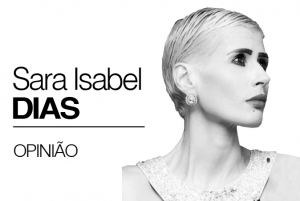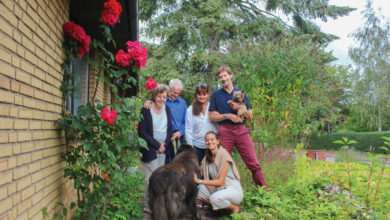When your spouse is also your caregiver…
The spousal caregivers of people with Alzheimer’s and Dementia, often called the invisible second patients, are critical to the quality of life of their loved ones. The effects of being a caregiver, though occasionally positive, are generally negative, with high rates of psychological stress and social isolation. Typically, their vulnerability to these adverse effects can be identified, as can factors which ameliorate or exacerbate worry and strain. In their day-to-day, they are burdened heavily, with the responsibility of managing their loved ones’ health in all forms. From comprehensive management of daily routines to medication, one becomes drained physically and emotionally.

From my experience, I have witnessed my mãe’s transition from being a wife to a caregiver for my pai, who suffers from Alzheimer’s and Dementia. On the surface, she tries to make the best out of the situation, tending to his needs by herself with some support. However, emotionally, the pain is undeniable, and sometimes… it is unbearable. Imagine, your one true love, who you have built a life with, suddenly begins to become a shell of their former self.
As time goes by, care recipients may slowly lose the cognitive ability to relate to their spouse or become physically incapable of engaging in traditional intimacy. In which case, spousal caregivers feel as though they have lost the husband or wife they once knew so well. Their partner has become a different person, which leaves them mourning and grieving daily the loss of their previous lives together. Growing up, pai was a master cabinetmaker, which he devoted his time to as a career and passion, until he retired. But, nowadays, the tools he once made pieces of art with… they are foreign and alien to him. To see him like this, it breaks my heart… but for mãe, she smiles, puts on a courageous face, and continues to love her husband each day deeper.
Without a doubt, the emotional strain can have an irrefutable impact on physical well-being of spousal caregivers. Excess stress can lead to poor sleep, increased blood pressure, weight gain or loss, and many other symptoms. Aside from physical conditions, simple actions become an added challenge. For example, wives may have trouble helping their husband move around the home, due to a sheer difference in weight and size. In which case, it may be helpful to seek assistance from community/health care organizations or utilizing support devices. Assistive technology aids seniors to maintain their functional independence with cognitive decline or physical challenges with their daily activities.
The dynamics of a marriage will likely change significantly, as the effects of the physical or mental diminishing abilities continue to deteriorate. Pastimes such as travel or meeting friends for dinner can become increasingly difficult. Often, a caregiver will need to make sacrifices, so as to ensure their spouse can comfortably participate alongside them. In recent years, pai has become co-dependent on mãe for assistance. So, quality time with friends slowly shifted to the household or phone calls. It may not be perfect; however, caregivers accept these circumstances as part of their role.
As a caregiver, ensuring the protection of your partners’ humanity and dignity is pivotal and paramount, but this can be challenging in certain social situations. With a good support system in place, allow yourself to experience the wide range of emotions that will inevitably surface. The process is rewarding as you experience and conquer a new chapter with the one you love. Support resources can be found in various forms, including family such as siblings and friends; some of whom may be in similar situations and can relate to your feelings. And when you need a break, spousal caregivers should consider seeking respite care from home care services, or adult day programs. Respite care can provide caregivers and their spouses with time away from one another, which is just as important now as it was at any other time during the marriage.
Mãe, I don’t think this what you expected when you were a 21-year-old young woman living in Lisbon, falling in love with a handsome young man from Viana do Castelo. You didn’t know that two children and endless hours of parenting later, you’d playing caregiver in your seventies. And I’m sure you didn’t expect it to be your husband you’d be caring for. Thank you for giving up your golden years for his. I know you’d rather have no free time than see him alone, anxious or worried with someone that might not be quite so patient. Pai’s condition has moved a lot faster than we thought it would, hasn’t it? Your determination in keeping him home for as long as possible, no matter how many hours you support and care for him is unparalleled…but one-day transitioning to long-term care, will be upon us.
I’m blessed with the most incredible mãe and pai… Life’s challenges are always faced, and each one solved together…taking lemons and making lemonade…still embracing the adventure of life…living every day as a gift… spinning every situation with enjoyment, laughter, fun, pleasure and still dancing the “Vira” together through it all…as the journey goes on…







Redes Sociais - Comentários